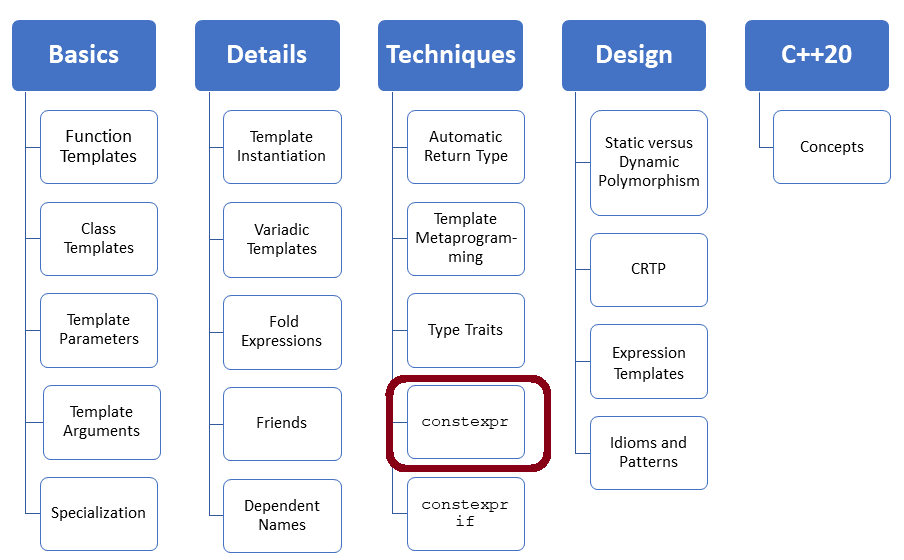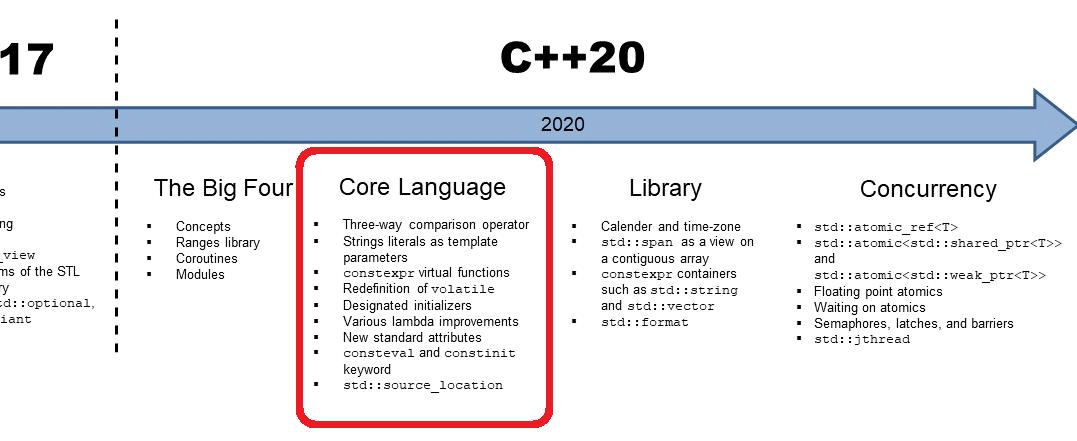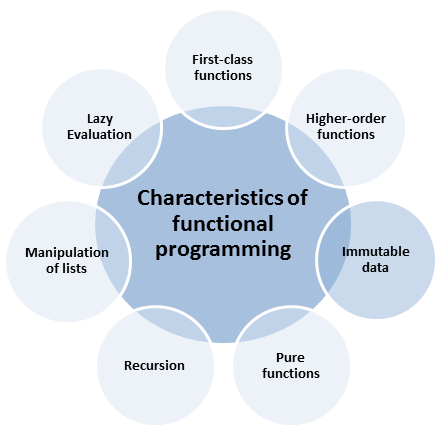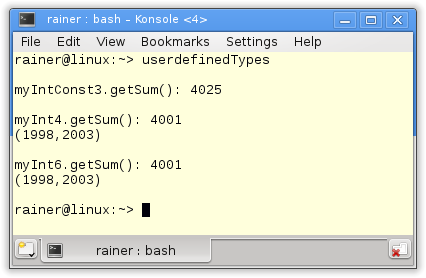Posts

constexpr and consteval Functions in C++20
/
0 Comments
With C++20, constexpr became way more powerful. Additionally, we have consteval functions in C++20…

constexpr Functions
Today, I continue my story about programming at compile time. After template metaprogramming, the type-traits…

constexpr std::vector and std::string in C++20
Probably the most viral keyword in modern C++ is constexpr. With C++20, we have a constexpr std::vector…

volatile and Other Small Improvements in C++20
Today, I complete my tour through the C++20 core language features with a few small improvements. One…

C++ 20: The Core Language
My last post C++20: The Big Four started with an overview of concepts, ranges, coroutines, and modules.…
C++ Core Guidelines: Programming at Compile Time with constexpr
My mini-series about programming at compile time started with template metaprogramming, continued with…

Immutable Data
A key to purely functional languages is that their data are immutable. Therefore, assignments such as…

constexpr Functions
constexpr functions are functions that can be executed at compile time. Sounds not so thrilling. But…

constexpr – Variables and Objects
If you declare a variable as constexpr the compiler will evaluate them at compile time. This holds not…

Constant Expressions with constexpr
You can define with the keyword constexpr an expression that can be evaluated at compile time. constexpr…
